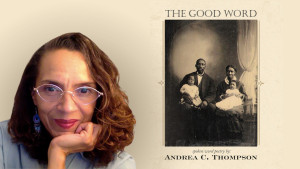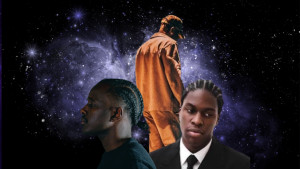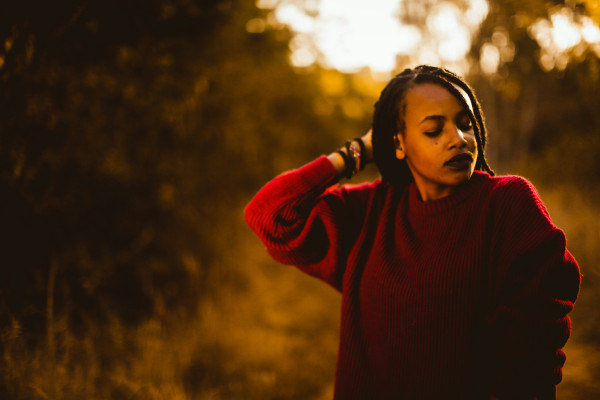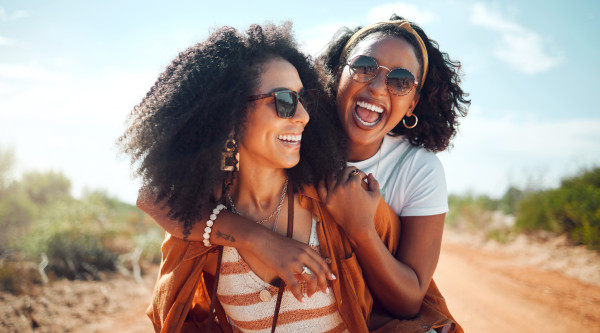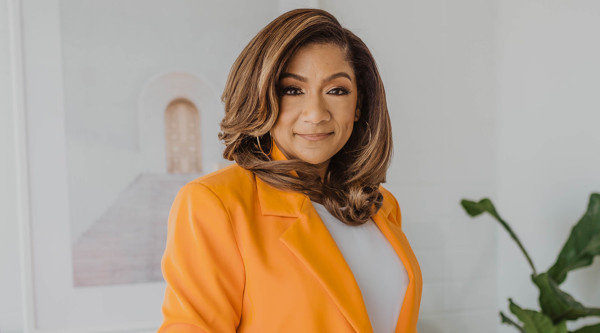When I watched your All-Star performance, I felt the intentionality in the lyric change. Can you speak to why you chose to make that change?
I hadn't been singing the anthem for quite a few years after things came to light around Indigenous lives, Truth and Reconciliation, Indigenous perspectives, and more. Being someone with Indigenous friends, I just needed to pause and figure out what this anthem meant to me and how it impacted them negatively.
But then this opportunity presented itself, which was on my bucket list–I love basketball and played basketball. And it's the largest stage for the Canadian anthem in the world. And so, coming off of Riri's Super Bowl, you know, some key moments were happening for Black women, especially Black Caribbean women.
And now add another layer. I'm a Black Caribbean Canadian woman representing this very white country. So, I thought: Okay, how do I make this meaningful? How do I truly be a collaborator and an accomplice more so than being an ally from a distance? That's not helping the situation enough, when I have the platform, privilege and celebrity that can be used positively. This whole thing with the anthem opened doors I've been praying for my entire life. I believe that's my lot in life, my purpose, to be a connector.
{https://www.instagram.com/p/Co5qbJ6OPaW/?hl=en}
So, what does it mean to you to be Black, Caribbean, and Canadian on native land with all that history of being both on colonized land and having heritage from a colonized nation?
For me, I’m a student at 45 years old. I’m going through life questioning why certain things have happened the way they’ve happened. I have a certain level of privilege, which, you know, some people don't associate with Blackness. When it comes to Indigenous stories, we're all privileged. I think about my friends who are now recovering the bodies of their family members. Not discovered, not found, but recovered, right? So, for me, to be Black Canadian and Caribbean on native land means that I have a responsibility to lovingly and with grace do my part to help provide some sort of ointment and healing to those of Indigenous descent.
Because of the lyrical change, you've received a lot of hate, racism, and outright threats from non-Black people of colour recently. Obviously, white people as well, but there's already a lot of conversation around white accountability. What do you think non-Black people of colour can do to be better allies to the Black community of Canada?
I think it's important for non-Black people of colour to take pause and realize that historically, they have become the model immigrants in Canada. And therefore, opportunities that are presented to them sometimes render Black people ineligible for those same opportunities. Because they too tick a box—but they tick a box with a different history. They tick a box without being rendered a threat to others. They're not rendered aggressive when they're being assertive. They're not rendered angry if they have a point of view. I also go as far as saying, take a look at the texture of your hair, take a look at the shape of your nose, take a look at the curl of your lips. These things also render some non-Black people of colour as easily acceptable.
{https://www.instagram.com/p/CpJ40AzOSat/?hl=en}
There's been a lot of talk about where entertainers fit in these political conversations. What do you think the role of the Black entertainer is in these kinds of conversations?
I don't think it's a matter of being a Black entertainer. I think that if you have influence, impact, celebrity, fame, then you have an opportunity to use your platform to be an activist. I can look at the body positivity movement, and the Me-Too movement; I can look at women's rights and equity. So I think that it spans beyond being a Black entertainer. I recognize that we do set the trend, whether it's fashion, music, or food, Black people are influential. But we're not necessarily the ones who are benefiting from this; the success, especially the monetary gains. We are quite the lucrative culture, but are we the ones being beneficiaries of the very things that we have rendered cool? But to come back to your question, all of us have an opportunity to move the dial, to stand in the gap, and to be an amplified voice.
With everything surrounding the national anthem and the backlash you’ve received, the topic of care for Black entertainers is important. So, I'm wondering what care looks like for you, for Black entertainers, especially Black women in entertainment in Canada?
That's such a good question. We often think about self-care—I realized for me that’s a whole process. I have to pause and be like, ‘Okay, I have to do my mantra, pray, write in my journal, drink my smoothie, do my Peloton.’ And that could take up your whole day, trying to tick all those self-care boxes. Before you know it, I have stress all over again.
So, another part of what care looks like for me is making sure I have key people in my life who can truly see the signs when Jully needs help and support. Care looks like being able to be 100% vulnerable and courageously bold in all things. There’s also the obvious care, taking agency over your health, especially your reproductive health, whether you want to have children or not. Therapy, emotional literacy. Financial literacy. Having mentors. Care is having community. I have a sister circle, Wake & Worship, a part of my 100 Strong & Sexy organization. And that's every Monday, no matter what. Praying, sharing your wins, sharing your struggles. We leave that call much more able to take ownership of our day, week, and month.
As an artist, when you go through things like the incident that you just went through, all the racism and the hate that you've dealt with, how do you see care from your fans?
Oh my gosh, well, let me say this. I have never felt this much love in my entire career, especially from the Black community. Even though I stood in the gap for Indigenous people, I feel like I represented the Black community in a way that brings us class and praise. To come full circle to see my people stand with me and for me, you know, that’s so big.
I'm about the community, I'm for the community, I'm in the community, and I'm of the community. Getting that love from everyone made me realize that some of the community just needed to see themselves in me. And to realize that they can also take those same types of risks. Systemically, in relationships, friendships at the grocery store, at the parking lot.
People don't realize that we are racialized every day. I've been asked if I own my house by police officers when I'm parked in my driveway. I've been asked if I own the car I drive by police officers. I didn't even run a red light, didn't run a stop sign. “Can I see your ownership and your registration? Oh, what do you do?” I asked, “Why do you need to know what I do? Did I do something wrong?” It’s racism.
Absolutely. You can't put your race in a box and pretend it's not there. It's always there.
Well, this is the thing. I cannot present as anything but Black. I have friends who present as white. And choose to present as white. This girl right here can't present as anything but Black. And I'm happy. Why would I want to present as anything else?
That's the message that I want everyone to know. That it's getting better. We have to move from what we deserve to what we’re worth. I used to say, ‘I deserve this.’ And that's almost like a reward system. We have to shift to recognizing that innately you're born with full value, full wholeness, and full authenticity.
To continue empowering us, Jully Black is hosting an event for Women's Heritage Month brought to you by Black women on March 26, 2023, called Jully Black x lululemon Celebrate: Women's Heritage & Wellbeing.
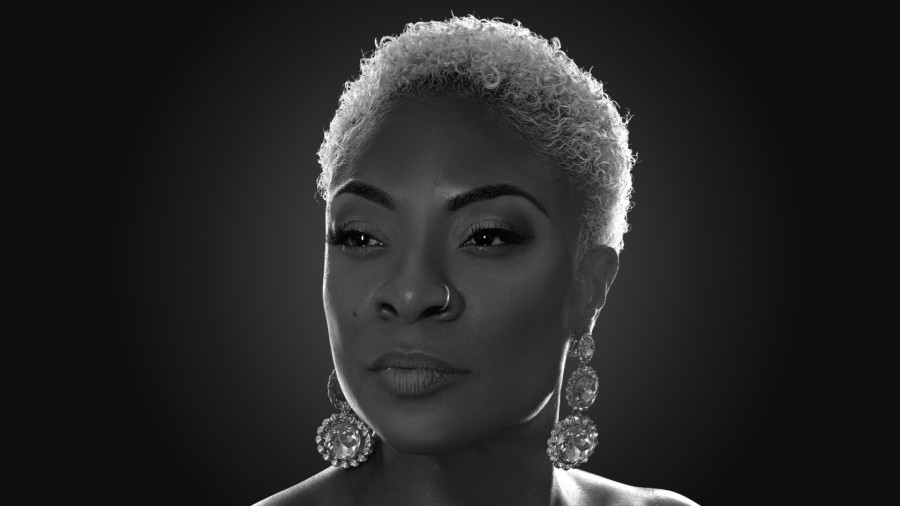
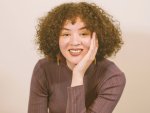 By
By 




